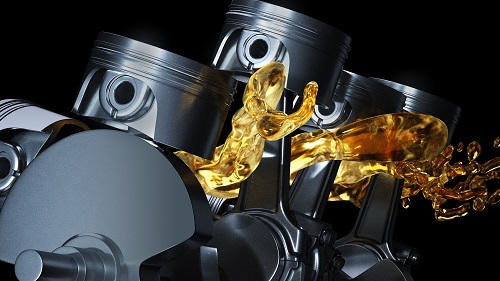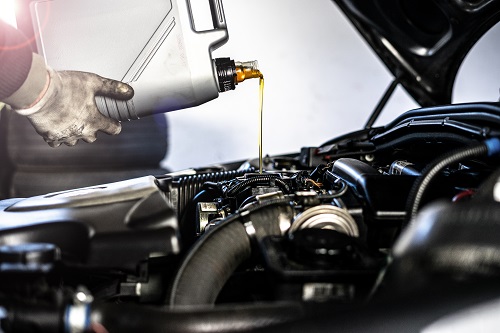Most people fail to appreciate the role that engine oil plays in keeping vehicles running smoothly. Often, car owners would instead make sure their ride has a smooth metallic paint finish or the best set of mags. But expert mechanics will tell you that engine oil is one of the most crucial substances you put in your car. Without it, you might as well forget about worry-free driving or say goodbye to your vehicle. In this article, you will get to know about the 5 reasons to switch to high mileage oil.
One of the best tips you can get from seasoned drivers and mechanics is changing your car’s oil regularly. But more than the frequency of your oil changes, you need to also pay attention to the kind of oil you put in. Simply put, you keep your engine going with quality oil. There’s no shortcut or workaround to taking good care of your car engine.
Types Of Engine Oil
Indeed, cars are about to get a major overhaul. The automobile features that used to exist only in movies are slowly becoming part of reality. Future car technology like keyless access, self-repairing tires, and, of course, self-driving automobiles aren’t only possibilities but are now in their final development stages.
But with all these innovations, one thing remains. Cars—or any vehicle, for that matter—will always need engine oil. Lubrication between the engine’s pistons and cylinders is necessary for efficient performance and to prevent deterioration.
That said, you need to change your engine oil regularly. The rule of thumb for oil changes is to have one after 5,000 miles. But modern engines and modern engine oil formulations can push the limit to around 7,500 to 10,000 miles per oil change. That said, here are the four main types of engine oil:
- Mineral: Also referred to as conventional oil, this is the crudest among all types of engine oil. Made from refined petroleum, it offers little protection and lubrication for the engine. It’s also the cheapest.
- Semi-synthetic: Has fewer impurities than conventional oil. This blend combines the affordability of mineral oil and the functionality of synthetic oil. It’s essentially the middle child of the engine oil family.
- Synthetic: This type offers a more consistent blend of additives without the impurities. This oil is chemically engineered to provide a higher level of performance even at extreme temperatures.
- High Mileage: This contains a unique formulation that blends various additives designed to reduce engine oil burn and protect against leaks.
Why Switch To High Mileage Oil?
If you’re asking what oil you should use for high-mileage vehicles, then high-mileage oil is the short and sweet answer. Apart from what’s obviously stated in the name, there are other reasons why switching to high mileage oil is a smart move on your part
- Extra Detergents
Thanks to the extra detergents included in its formulation, high mileage oil can help keep older engines running clean. This oil does an excellent job at minimizing sludge presence in older engines.
2. Sealant Conditioners
Through time and usage, the seals in your engine may shrink and lose elasticity. When that happens, your car’s engine may have leaks, poor performance, and even cause filthy emissions. The added sealant conditioners in high mileage oil can help reduce or eliminate such problems. These additives can recondition the seals in your old engine to boot.

3. Anti-Friction And Anti-Wear Formula
High mileage engine oil is designed for older vehicles with high mileage. It’s formulated with additives that reduce friction between metal parts, thus helping prevent further engine wear and tear.
4. Odometer Reads 75,000 To 100,000 Miles
There’s a reason why it’s called ‘high mileage engine oil’—it works for older vehicles with high mileage. If your car has run at least 75,000 miles, you may consider switching to this type of engine oil. When a vehicle has traveled this distance, engine wear and tear may be slowly creeping in and affect its performance. You may experience
- increased fuel consumption,
- the slow start in hot or cold temperature,
- reduced gas mileage,
- high emission, or
- leaks in the engine.
These signs are often brought by filth and sludge in the engine. Using high mileage oil can mitigate these issues.
5. Loud Engine Sound
Switching to a high mileage oil helps if your engine’s sound has become louder than usual or if you hear rattling when it’s running. These problems may indicate that you need to use motor oil with higher viscosity and denser composition. You can find such characteristics in high mileage engine oils.
The Bottom Line
If you’re driving an older vehicle that has traveled at least 75,000 miles, you may consider using high mileage oil on your next preventative maintenance. A high mileage engine oil has detergents and additives that may help in reconditioning engine sealants and minimizing sludge deposits. Ultimately, it provides more protection for all the moving parts in your older engine.
While mechanics emphasize that this type of engine oil isn’t some magic solution that can bring back your car’s performance when it was brand new, it does help in extending the life of older engines that have gone way beyond their warranty period.





